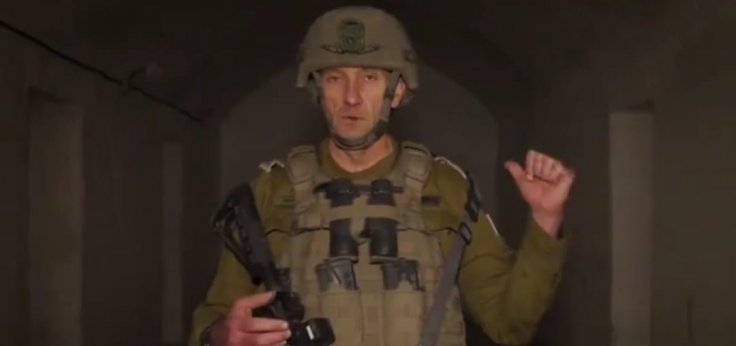In a major development in the ongoing conflict between Israel and Hezbollah, Israel Defense Forces Chief, LTG Herzi Halevi, recently inspected a tunnel belonging to the Iran-backed militant group in southern Lebanon. The visit exposed a sophisticated network of tunnels designed for military operations, highlighting Hezbollah's preparations for a potential all-out war against Israel.

The video of Halevi's inspection reveals well-equipped facilities that suggest extensive planning and resources allocated for conflict. In his remarks, Halevi stated that the Israeli military has been sounding alarms for years regarding Hezbollah's military buildup along the Israel-Lebanon border. "To the countries that doubted it, including the United Nations and UNIFIL forces stationed here, we caught this in time, before it was too late," he asserted, emphasizing the critical nature of the findings.
The tunnels, located alarmingly close to the Israeli border, feature an array of amenities designed for long-term military use. Halevi pointed out the presence of bathrooms, showers, kitchens, and several weapon storage facilities within the tunnel system. Notably, he mentioned that one room could accommodate an entire military company. "It's possible to stay here, live here, equip yourself here, and head east for an invasion into Israel," Halevi explained, underscoring the strategic importance of these structures.
Chief of the General Staff Lt. Gen. Halevi revealed today a huge tunnel discovered in South Lebanon, which was an underground combat site, Hezbullah constructed over years for the purpose of an invasion of Israel. pic.twitter.com/hdFiEGtDqq
— Daniel Meron 🇮🇱🎗 (@AmbMeron) October 28, 2024
Halevi's inspection also shed light on the intensity of the conflict in the region. He examined entry points to the tunnel and noted the presence of numerous AK-47 bullet casings scattered on the ground, indicating heavy fighting. Additionally, he found improvised explosive devices (IEDs) that had been stockpiled within the tunnels for use against Israeli forces. These observations serve as a stark reminder of the persistent threat posed by Hezbollah and the urgent need for Israel to maintain vigilance in its military operations.
During his visit, Halevi expressed gratitude towards his officers for their successful operations in dismantling the tunnel infrastructure and neutralizing Hezbollah fighters stationed there. He commended their efforts in a challenging environment, noting the risks involved in such missions. "Our new mission is to destroy these tunnels completely so that Hezbollah cannot operate from here again," he stated, reiterating the Israeli military's commitment to ensuring the safety of its borders.
Looking ahead, Halevi highlighted the long-term strategy necessary to combat the threat posed by Hezbollah's infrastructure. "Our task over the years to come will be to make sure that no new infrastructure is built," he said, indicating a proactive approach to preventing the resurgence of such military capabilities.
As tensions continue to simmer in the region, the findings from Halevi's inspection may have significant implications for Israel's military strategy. The identification of Hezbollah's tunnel network reinforces the need for a robust and coordinated response to counter potential threats. It also raises questions about the effectiveness of international monitoring efforts, particularly from the United Nations and UNIFIL forces, in addressing the ongoing military buildup along the Israel-Lebanon border.
In summary, LTG Herzi Halevi's visit to the Hezbollah tunnel in southern Lebanon not only revealed critical information about the group's military capabilities but also underscored Israel's determination to neutralize threats from its northern neighbor. As the situation evolves, the Israeli military remains focused on maintaining security and preventing any future conflicts arising from Hezbollah's preparations for war.
4o mini









